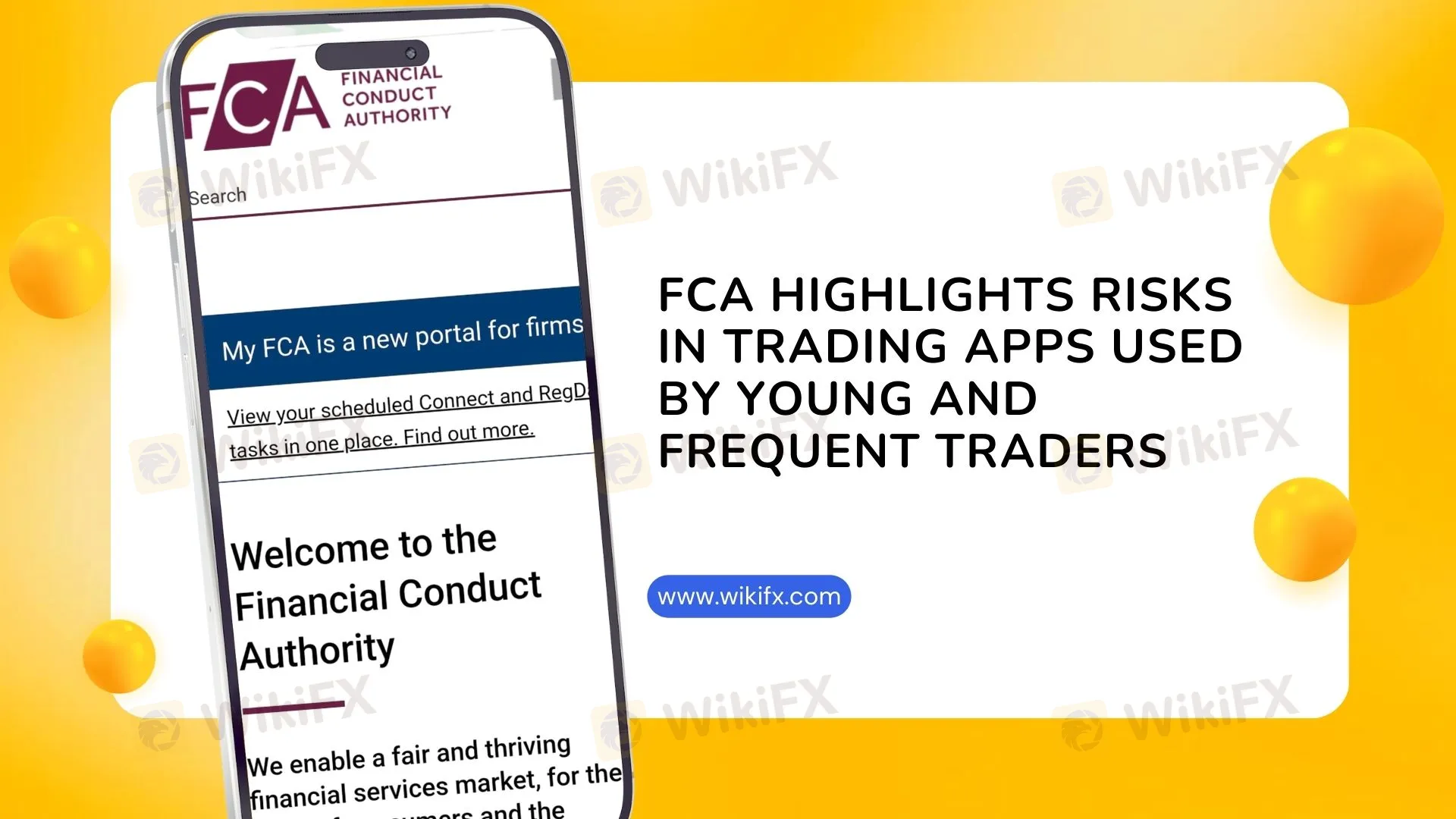简体中文
繁體中文
English
Pусский
日本語
ภาษาไทย
Tiếng Việt
Bahasa Indonesia
Español
हिन्दी
Filippiiniläinen
Français
Deutsch
Português
Türkçe
한국어
العربية
FCA Highlights Risks in Trading Apps Used by Young and Frequent Traders
Abstract:A new FCA report finds that trading app features may drive excessive trading among younger users, with some platforms lacking adequate checks for high-risk products.

The UK Financial Conduct Authority (FCA) has released a multi-firm review and behavioral research highlighting key risks associated with trading apps, particularly those used by young and frequent traders.
Key Findings on Business Models and Engagement Practices
The review covered 12 trading app providers, revealing diverse business models. Some acted as introducers, directing users to affiliated platforms. Revenue streams included commission, subscription fees, and interest from idle balances. FCA noted that some firms lacked sufficient oversight of pricing fairness and investor value.
Firms employed digital engagement practices (DEPs), such as push notifications and gamified incentives. While all firms showed some awareness of the risks, FCA cautioned that some app designs may unintentionally drive higher trade frequency and risk exposure.
Target Market and Product Suitability Concerns
The FCA observed that several apps did not adequately define their target customer profiles. In some cases, complex or high-risk products were accessible to users without sufficient knowledge or experience. Appropriateness testing was found to be weak in certain apps, allowing unqualified investors to access unsuitable offerings.
Behavioral Research Shows Demographic Impact
FCA's behavioral study indicated that trading apps with more gamified elements attracted users with lower income and higher trade frequency. These users also tended to have worse investment outcomes, raising questions about how app design may be linked to real-world financial results.
Conclusion
The FCA has not mandated specific changes but encourages firms to examine their app designs, especially concerning user engagement features, pricing transparency, and risk control procedures. With trading apps rapidly growing in popularity, especially among younger demographics, proper oversight remains critical to ensuring responsible investment access.
Disclaimer:
The views in this article only represent the author's personal views, and do not constitute investment advice on this platform. This platform does not guarantee the accuracy, completeness and timeliness of the information in the article, and will not be liable for any loss caused by the use of or reliance on the information in the article.
Read more

Never Heard of Dynasty Trade? Here's Why You Should Be Worried
Have you heard this name before? No , it’s time you do because staying unaware could cost you. This platform is currently active in the forex trading and has been linked to several suspicious activities. Even if you’ve never dealt with it directly, there’s a chance it could reach out to you through ads, calls, messages, or social media. That’s why it’s important to know the red flags in advance.

Want to Deposit in the EVM Prime Platform? Stop Before You Lose It ALL
Contemplating forex investments in the EVM Prime platform? Think again! We empathize with those who have been bearing losses after losses with EVM Prime. We don't want you to be its next victim. Read this story that has investor complaints about EVM Prime.

WEEKLY SCAM BROKERS LIST IS OUT! Check it now
If you missed this week's fraud brokers list and are finding it difficult to track them one by one — don’t worry! We’ve brought together all the scam brokers you need to avoid, all in one place. Check this list now to stay alert and protect yourself from fraudulent brokers.

Catch the Latest Update on BotBro & Lavish Chaudhary
BotBro, an AI-based trading platform, became popular in India in 2024—but for negative reasons. Its founder, Lavish Chaudhary, who gained a huge following by promoting it heavily on social media. Since then, he has become well-known, but for many controversies. Let’s know the latest update about Botbro & Lavish Chaudhary.
WikiFX Broker
Latest News
Is Your Forex Strategy Failing? Here’s When to Change
FSMA Warns That Some Firms Operate as Pyramid Schemes
Apex Trader Funding is an Unregulated Firm | You Must Know the Risks
Sigma-One Capital Scam? Investors Say They Can’t Withdraw Funds
Federal Reserve likely to hold interest rates steady despite pressure from Trump. Here's what that means for your money
WEEKLY SCAM BROKERS LIST IS OUT! Check it now
Intel drops 9% as chipmaker's foundry business axes projects, struggles to find customers
Palantir joins list of 20 most valuable U.S. companies, with stock more than doubling in 2025
Textiles to whisky: U.K.–India 'historic' deal is set to boost bilateral trade by over $34 billion a year
Thailand-Cambodia border clashes: Cambodia's economy has more to lose, analysts say
Currency Calculator


